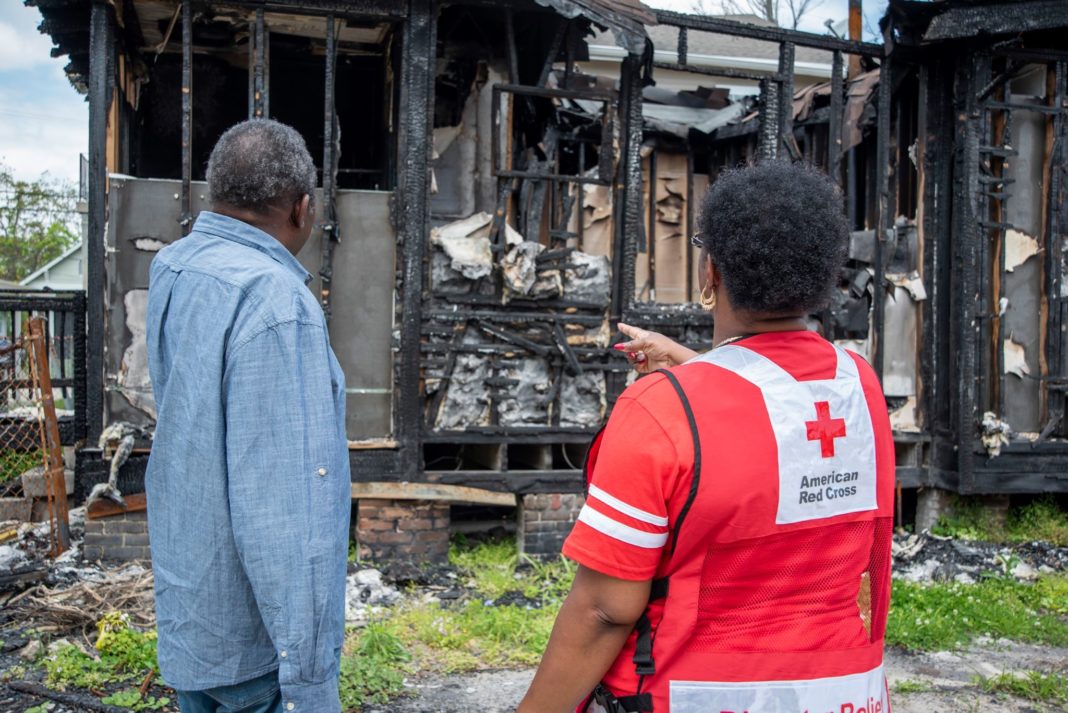Red Cross survey: Most of us are underprepared as home fires continue during COVID-19
NASHVILLE – Red Cross Tennessee Region urges residents to test their smoke alarms and practice their escape plan as home fires continue during COVID-19.
Since February, the American Red Cross in Tennessee has responded to 1,055 home fires in Tennessee to help 4,293 people with urgent needs like emergency lodging, financial assistance and recovery planning. The nation’s most frequent disaster, home fires are most often caused by cooking, according to the National Fire Protection Association, which is sponsoring Fire Prevention Week with the theme, “Serve Up Fire Safety in the Kitchen!”
“Unfortunately, home fires haven’t stopped during COVID-19, and neither has the need to prevent fire tragedies,” said Joel Sullivan, regional executive for the Red Cross Tennessee Region. “During Fire Prevention Week, we recommend testing your smoke alarms and practicing your escape plan. These simple steps can help protect you and your loved ones in the event of a fire.”
RED CROSS SURVEY: MOST OF US ARE UNDERPREPARED
Home fires claim seven lives a day in the U.S., but a new 2020 national Red Cross survey shows most of us aren’t taking the steps to protect ourselves.
- Testing your smoke alarms each month helps ensure that they’re working — which can cut the risk of dying in a home fire by half. Still, 65% of us don’t.
- Practicing your escape plan twice a year also increases the odds of survival. But 70% of us don’t.
- Escaping in less than two minutes can be the difference between survival and tragedy, according to fire experts. Yet more than half of us think we have more time.
HOW TO PROTECT YOUR FAMILY
During Fire Prevention Week, test your smoke alarms and practice your escape plan until everyone in your household can get out in less than two minutes. Visit redcross.org/fire for more information or download the free Red Cross Emergency app (search “American Red Cross” in app stores).
- Test your smoke alarms monthly.
- Place smoke alarms on each level of your home, including inside and outside bedrooms and sleeping areas.
- Change the batteries at least once a year, if your model requires it.
- Check the manufacturer’s date of your smoke alarms. If they’re 10 years or older, they need to be replaced because the sensor becomes less sensitive over time. Follow the manufacturer’s instructions.
- Practice your escape plan until everyone can get out in less than two minutes.
- Include at least two ways to exit every room in your home.
- Select a meeting spot at a safe distance away from your home, such as your neighbor’s home or landmark like a specific tree in your front yard, where everyone knows to meet.
- Teach children what a smoke alarm sounds like. Talk about fire safety and what to do in an emergency.
About the American Red Cross Home Fire Safety Survey:
These findings are from a CARAVAN® Survey conducted by ENGINE INSIGHTS on Jan. 10-12, 2020 on behalf of the American Red Cross. For the survey, a demographically representative sample of 1,004 adults ages 18 and over from the continental U.S., Alaska and Hawaii was interviewed online in English. The precision of a CARAVAN survey can be measured using a margin of error calculation. In this case, the poll has a margin of error of ±3.1 percentage points for all respondents surveyed.
About the American Red Cross:
The American Red Cross shelters, feeds and provides emotional support to victims of disasters; supplies about 40% of the nation’s blood; teaches skills that save lives; provides international humanitarian aid; and supports military members and their families. The Red Cross is a not-for-profit organization that depends on volunteers and the generosity of the American public to perform its mission. For more information, please visit redcross.org or cruzrojaamericana.org, or visit us on Twitter at @RedCross.









